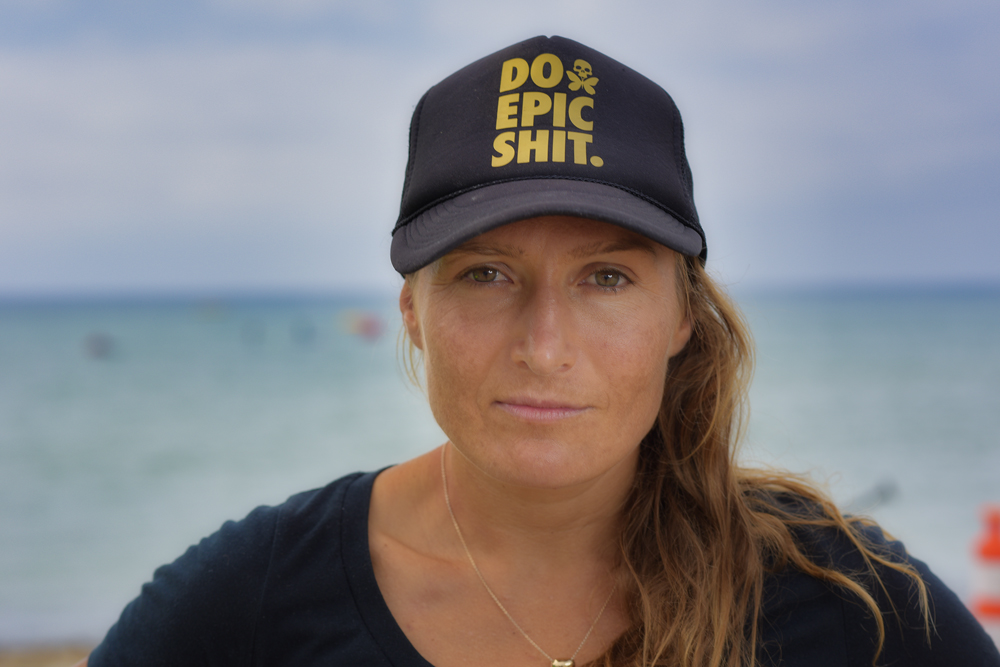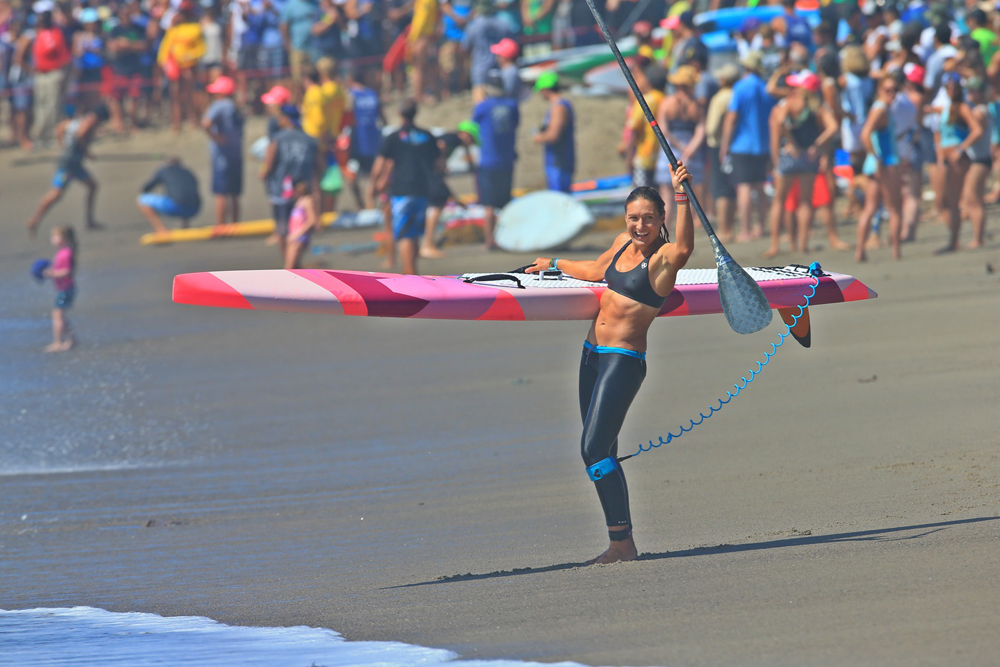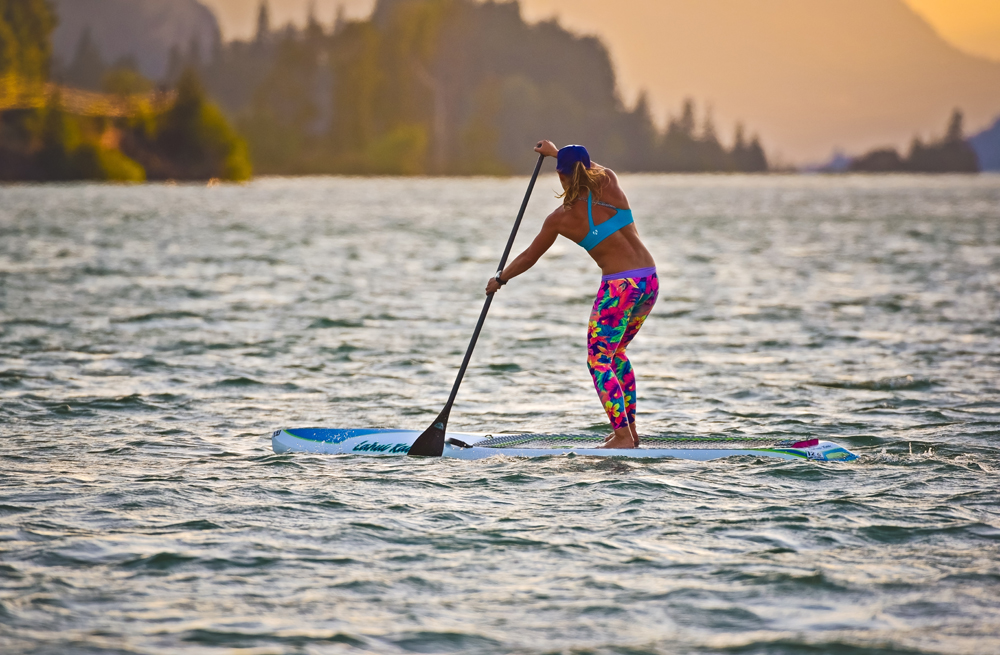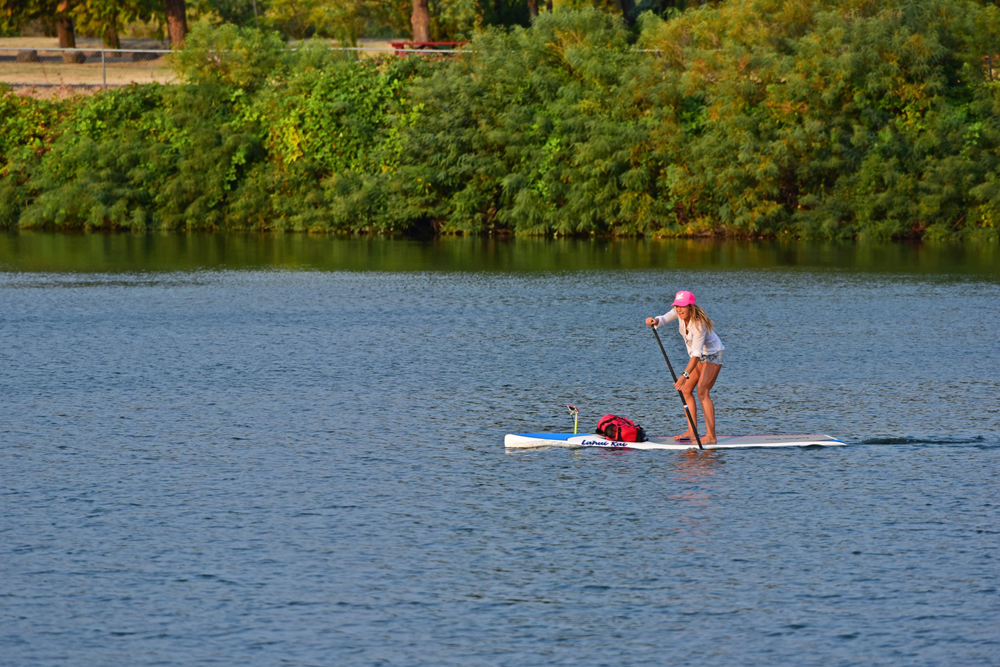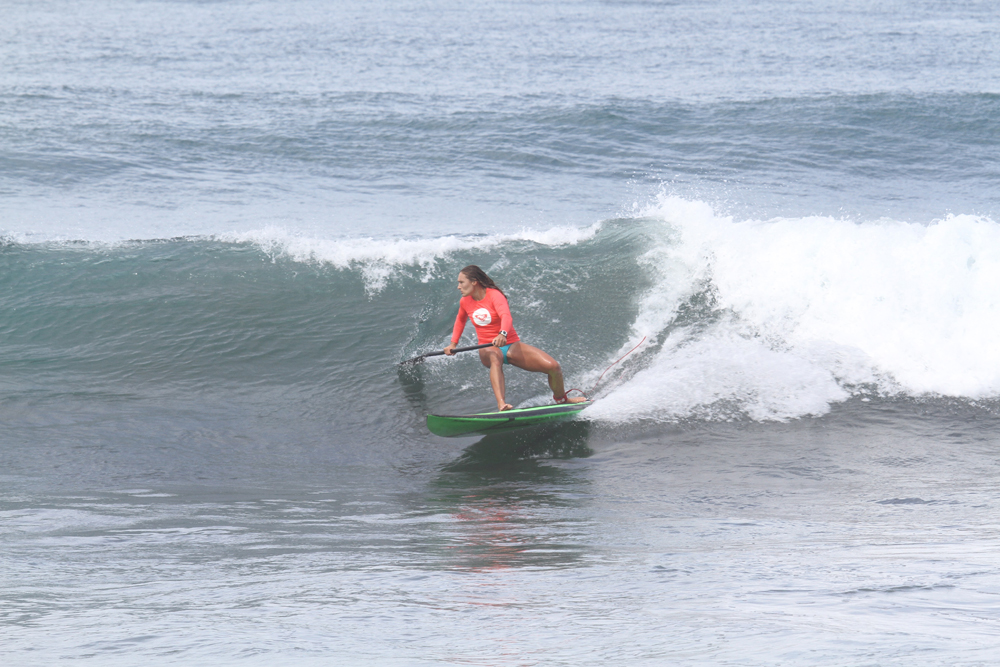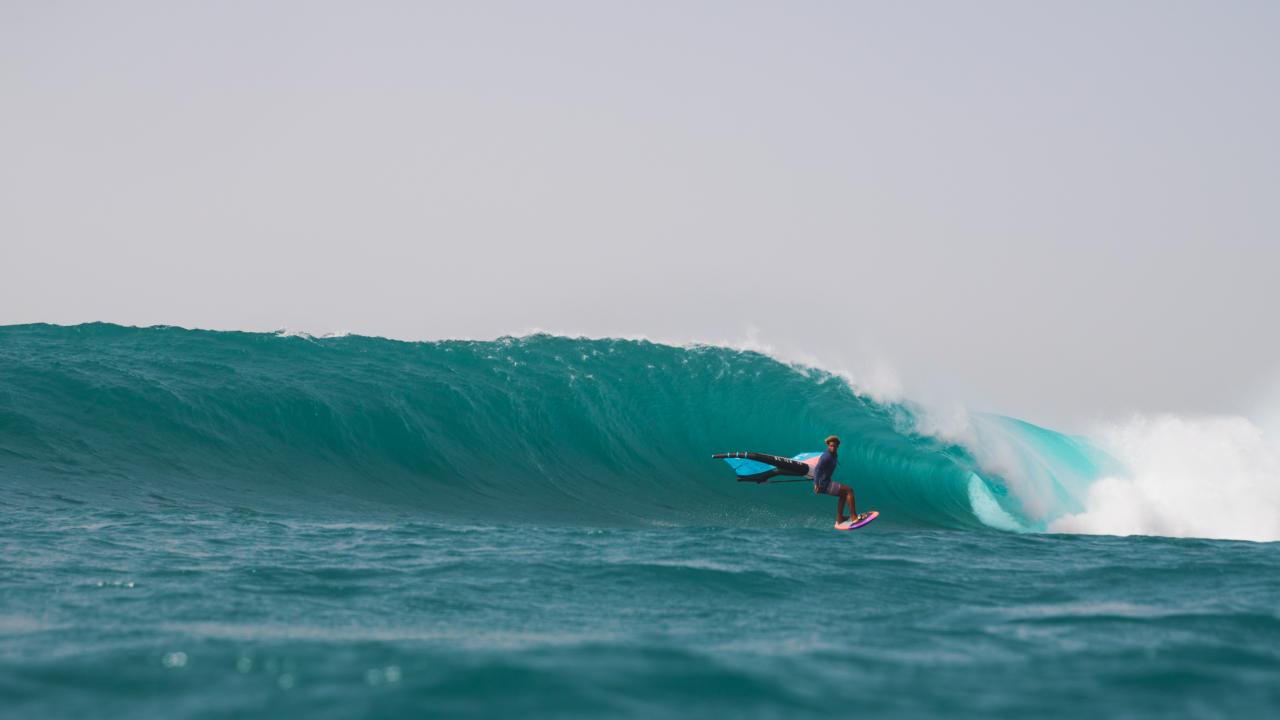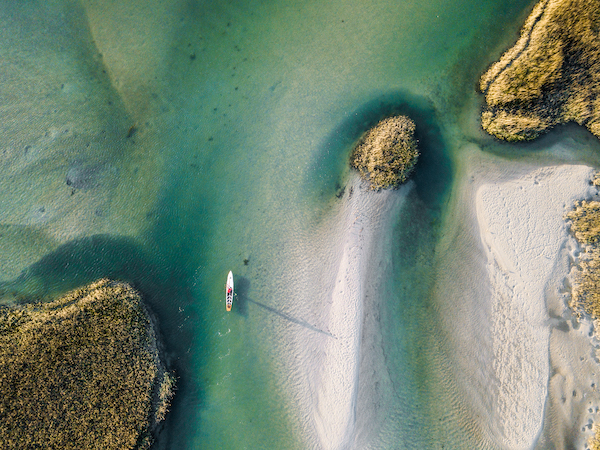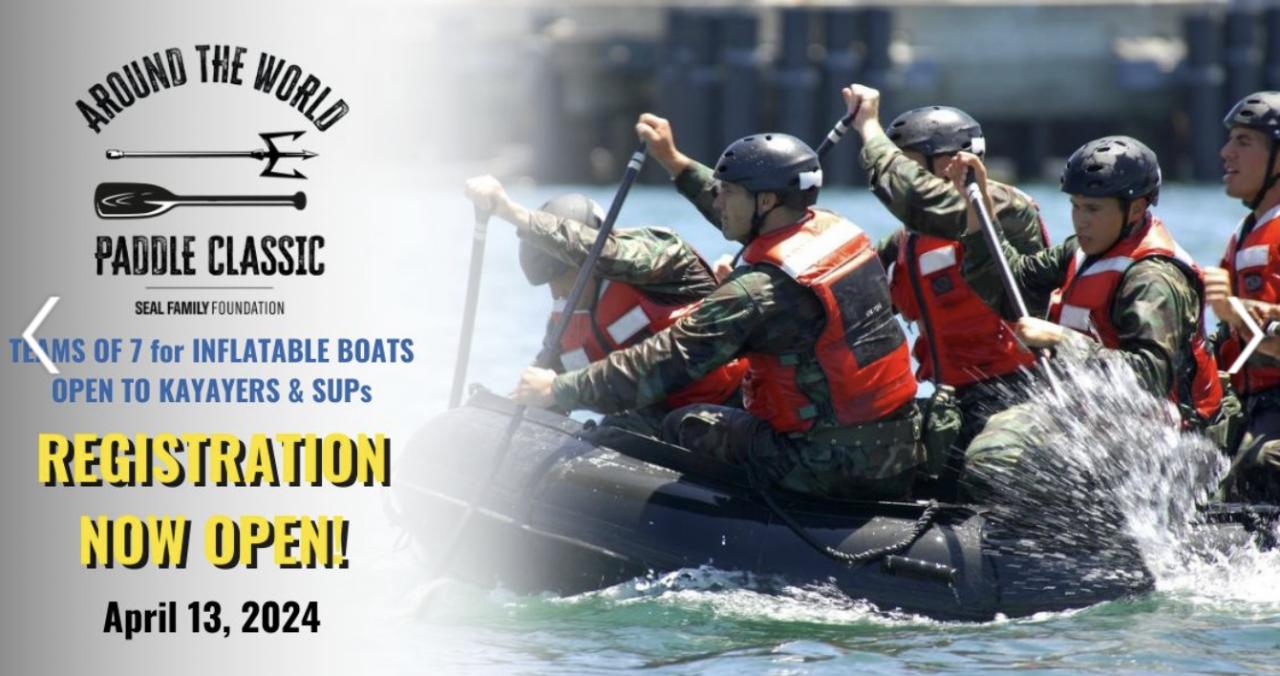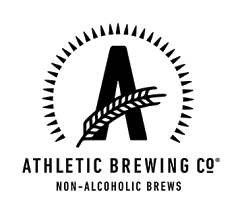Recognized as ‘Stand Up Paddle Athlete of the Decade’, Annabel Anderson is a multiple-time World Champion who dominated the position of No. 1 in the World from 2012-2017 consecutively. Her legacy is like no other. She’s won the biggest titles in the world, including 2017 ISA Long Distance and Technical World Champion, 2017 Pacific Paddle Games Overall Champion, 2018 Central Otago Sportswoman and Overall Sportsperson of the Year, 2018 SUP Female Performance of the Year and SUP Racer’s coveted Stand Up Paddle ‘Athlete of the Decade’ to go with her six years of dominance as No. 1 in the World in the professional sport of Stand Up Paddle Racing.
Hailing from the mountain resort of Lake Wanaka in the heart of New Zealand’s Southern Alps, Annabel’s ability to adapt and make the most of what she finds outside - regardless of season - be it snow, mountains, rivers, oceans or even the concrete jungles of the world’s largest cities, has created this tough athlete’s innate ability to make lemons into lemonade on repeat.
Since picking up a paddle, Annabel has left a trail of dominance across the sport of stand up paddling that led her to becoming the most winning athlete of her era – male or female. For this she was recognized as the Athlete of the Decade by Christopher Parker of Supracer.com.
From becoming the first (and only) female to win a World Cup overall (beating her male counterparts by over 6 minutes in France in 2012), she not only found herself sharing the men’s podium on countless occasions, but has also dominated the women’s side of the sport year after year from open ocean to surf racing, downwind to flat water, as well as technical river events.
Annabel Anderson is, in fact, a lethal legend across the sport of SUP. She is also an avid mountain biker, extreme skier and healthy outdoorswoman. Her appearance at the 2017 GoPro World Games where she competed across 11 different events, shows both her versatility and tenacity in training. Today, Annabel continues to drive her talent by combining her love of sports with her coaching skills and mentoring background. She is bright, vivacious, unrelentingly blunt and a motivational force behind many SUP racers today.
So, when Annabel speaks, we listen.
Here’s what Annabel Anderson has to say about the current importance of paddling and why, today, it is more important than ever:
The ‘WHY’ of Paddling, by Annabel Anderson
Whenever you do something long enough, there is always a point in time when you have to come back to the ‘WHY’ of what you’re doing. Paddlers know there is something about being on water that brings a sense of calm to the chaos of our current world.
I started paddling because of my connection to the water. After graduating university, I found myself dumped into the cut and thrust of city life, struggling to cope with living in a metropolis full of people, stress and noise. I was a kid from the mountains who always played outdoors and, suddenly, courtesy of a graduate job with a multinational corporation, I was surrounded by street lights and sirens that sounded throughout the night. If I was to cope with inner city living, I had to find a way to survive, and fast! Here there were no mountains, but I found myself surrounded by the waters of Auckland’s Waitemata Harbour. It didn’t take long.
I soon discovered a new sense of calm blagging my way onto boats to sail the waters made famous by the America’s Cup. Sailing fast became my sanity in the chaos of big city living. An offshore yacht race would lead me to the islands of the South Pacific. While waiting on a dock to get a tender out to the V5 which was anchored in the bay of Musket Cove, I saw a way to get there that didn’t require any waiting. A paddle board and a paddle were lying on the dock. To hazard a guess, it was most likely a Laird twelve footer with some long, extended outrigger-looking paddle variety. I launched the board, found my balance with a good chance that I was holding the paddle backwards, and made my way out to the boat and back.
What I found in that moment represented a sense of freedom and the opportunity to get to where I wanted to go on the water without having to rely on a crew or anyone else. Back in Auckland, I would bike down to Westhaven Marina in the evening, launch a board off the back of a friend’s boat to head up the harbor and return when the lights of downtown were twinkling over the water. The year was 2008, and the western world was fast descending into the depths of the Global Financial Crisis (GFC).
Working for an American company in financial services was stressful enough. Dealing with ongoing rounds of redundancies added to the anxiety that goes hand in hand with uncertainty. The more anxiety, the more I found myself seeking the solitude and recalibration of my night time paddles. While everything else seemed chaotic during the day, this was the one thing that brought a sense of calm to a situation that was far beyond my control.
Fast forward a year, when I found myself accidentally taking the “Kiwi OE” (Overseas Experience), by selling everything I owned and buying a one-way ticket to London on a two-year working holiday visa, courtesy of having been made redundant. I knew full well that if I didn’t take the leap to spread my wings before I hit 30, another decade would pass and I would have wondered what might have been if I hadn’t gone and thrown myself into an unknown adventure. It was a classic case of crisis equals opportunity, and there was no time like the present.
That is the short version of how I found myself in London, drawn to the god-awful murky tidal waters of the river Thames in pursuit of finding serenity in the concrete jungle of the city. Every day I would walk/bike/run beside the river as I commuted around the suburbs of Clapham, Fulham, Battersea, Chelsea and London proper itself. The river and bridges became my landmarks and sources of calm amidst the concrete. I’d watch rowers gliding up and down the water each day, wondering if I might be able to get one of those stand up paddle boards (that I’d been using back in Auckland) to sweep my way across the Thames.
It was a crazy idea, but an idea nonetheless. When you don’t know a soul in a city, you cease caring about what other people think. Today, as we navigate the increasingly turbulent waters of a pandemic era where anything and everything we have known has been thrown out with the bath water, going back to our ‘WHY’ in paddling’ is vital..
If I look back at ‘why’ I started paddling, it is the exact reason I am still paddling today and needing it more than ever. Paddling gives me a sense of freedom away from the underlying angst that flows into every conversation. It allows me to tune out the constant hum of bad news that we are being bombarded with twenty-four-seven by the simple moving meditation that comes from repetitively pulling a blade through the water.
When you’re out there paddling, nothing else matters.
The chatter of the outside world fades as you become immersed in the present moment. Paddling requires you to tune in to your senses and adapt moment-to-moment to your environment. As conditions change, paddlers are forced to adapt rather than fight the elements. If we fight we lock up and most likely find ourselves upside down, swimming back to our board.
From the very first time I stepped on a stand up paddle board, the sport has been as much about freedom as it was a means of getting somewhere. As I continued to paddle, it opened doors to adventures and places I could never have fathomed.
Rather than fight the tides, I flowed with it doing my best to work in harmony with wherever paddling was taking me throughout the years. There were definitely a few ‘course corrections’ which were needed along the way, but staying true to my ‘WHY’ always brought me back to my true North.
More than ever, stand up paddling teaches me not to fight but to be efficient and go with flow, seeking a path of least resistance and the chance to recalibrate. The simple act of gliding across the crystal clear, calm winter waters of Lake Wanaka reminds me to move smoothly through the water and enjoy the stillness in preparation for the Northwest winds that will melt the snow into our upcoming spring and summer. Paddling is a reminder to work with each season and embrace what each has to give, rather than jet somewhere else in search of warmer waters, as has been my norm of the past.
Maybe this new normal is what we’ve all been needing for a while?
Right now it doesn’t matter what kind of board I stand on. Anything that floats will do. It doesn’t matter what kind of paddle I pull through the water, as long as it has a blade that will propel me forward. It doesn’t matter what water I’m floating on as long as it is deep enough to let me glide.
What does matter is the going-and-the-doing with reason, purpose and intention, to maintain and sustain the mental, emotional and physical equilibrium to better deal with today’s outside world and all of its unknowns.
Only a paddler knows the feeling of the glide, but we all know that we become better versions of ourselves because of the time we spend on the water.

